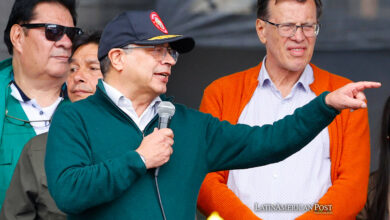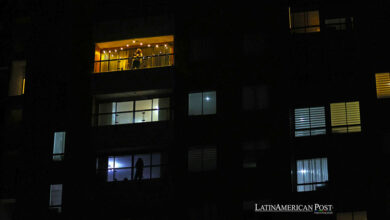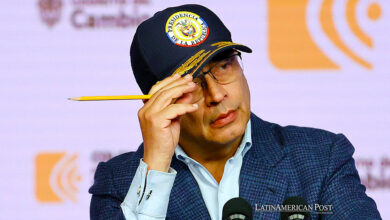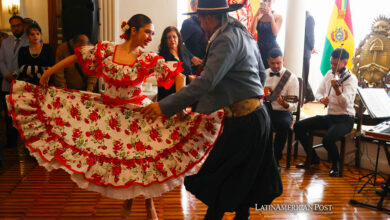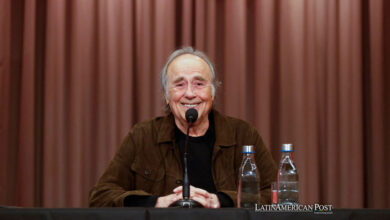Celebrating Paco de Lucía’s Flamenco Legacy at Colombia’s Bogotá Biennial
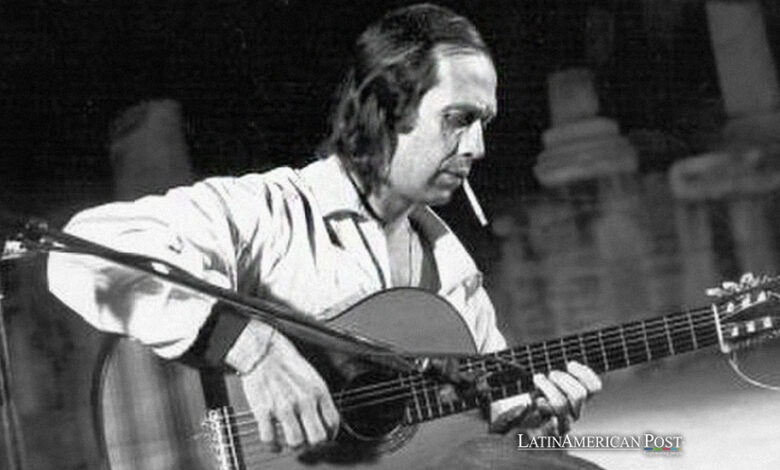
This year’s Bogotá Flamenco Biennial, dedicated to the legendary Paco de Lucía on the tenth anniversary of his passing, promises a vibrant tribute that intertwines the rich history of Flamenco with the guitarist’s indelible mark on the genre.
Honoring a Flamenco Icon: The Bogotá Flamenco Biennial
The Bogotá Flamenco Biennial, returning for its second edition from February 24 to March 2, is set to honor the artistic legacy of Paco de Lucía, a figure whose influence transcends the boundaries of Flamenco and Spanish music. As we approach the tenth anniversary of de Lucía’s death, this event celebrates his contributions. It reflects on the evolution of Flamenco within a broader cultural context, connecting with similar narratives across Latin America.
Paco de Lucía was more than a Flamenco guitarist; he was a musical innovator who infused his compositions with elements drawn from his travels and interactions worldwide, including in Latin America. For example, his encounter with the Peruvian cajón is a testament to his openness to global musical traditions, integrating it into Flamenco and thereby forever altering the genre’s soundscape.
The Biennial’s venue, the Teatro Colsubsidio in Colombia’s capital, will host four performances featuring prominent artists from the Flamenco genre, many of whom were de Lucía’s contemporaries and collaborators. This lineup underscores the deep connections and mutual influences among Flamenco artists, highlighting the genre’s communal spirit.
Global Recognition: Echoes of de Lucía at Carnegie Hall
Spain’s ambassador to Colombia, Joaquín de Arístegui Laborde, remarked on de Lucía’s significance not just to Flamenco or Spanish music but to the cultural heritage of Ibero-America and the world. This sentiment is echoed in the event’s parallel to a tribute at New York’s Carnegie Hall, where 70% of the artists will perform in both venues, bridging the Atlantic to celebrate de Lucía’s legacy.
Antonio Rey, opening the Biennial, exemplifies the ongoing evolution of the Flamenco guitar. A Grammy Latino winner for Best Flamenco Album in 2020, Rey’s career highlights the genre’s dynamic nature and ability to foster virtuosic talent across generations. His participation, alongside other esteemed artists, speaks to Flamenco music’s enduring appeal and relevance.
The tribute ‘Por Paco’ on February 25, marking the anniversary of de Lucía’s death, promises an immersive experience. Combining music, singing, and dance, it reflects de Lucía’s album ’10 de Paco’ (1994), featuring artists who were part of that project. This performance, led by jazz-influenced Flamenco pianist Chano Domínguez, showcases the genre’s versatility and intersection with other musical forms, illustrating how de Lucía’s work transcended traditional Flamenco boundaries.
The Paco Project’ and Collaborative Innovation
The inclusion of ‘The Paco Project’ on the closing night, led by de Lucía’s producer Javier Limón, brings together musicians who collaborated with de Lucía in his later years. This act pays homage to his musical journey and highlights the collaborative nature of his career, emphasizing Flamenco’s capacity for innovation and its influence beyond Spain.
De Lucía’s incorporation of the Peruvian cajón into Flamenco is a significant aspect of his legacy, illustrating his role in the globalization of the genre. This fusion of elements from Latin American and Spanish music traditions reflects a broader trend of cultural exchange and mutual influence that has characterized the relationship between Spain and Latin America. Flamenco, rooted in diverse cultural influences, including Romani, Arabic, and Jewish traditions, symbolizes cultural hybridity and innovation.
Also read: Unveiling the Spectacle: Deciphering the Intricacies of Brazil’s Rio de Janeiro’s Carnival Parade
In celebrating Paco de Lucía, the Bogotá Flamenco Biennial does more than commemorate a musical genius; it invites reflection on the power of music to bridge diverse cultures and to adapt and thrive in the face of change. Through performances that blend tradition and innovation, the Biennial stands as a vibrant testament to Flamenco’s enduring appeal and ability to inspire global artists and audiences.

